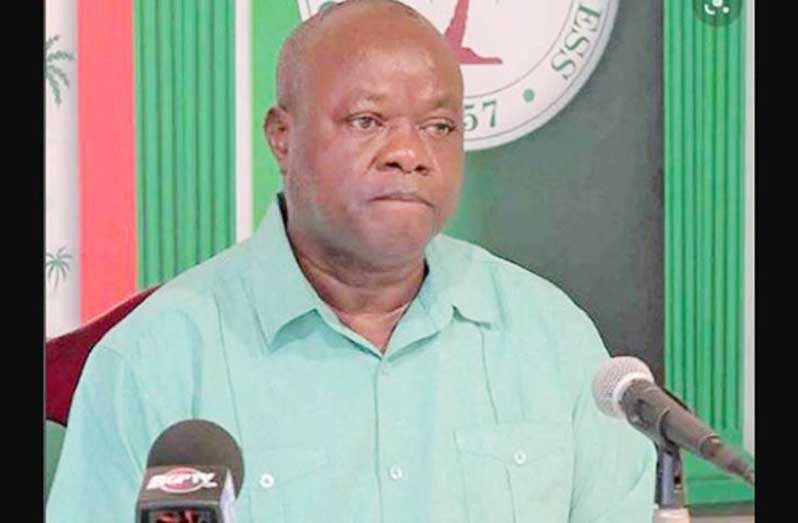–Norton says; uses unrealistic claim that bottle of gas was $1,500 under coalition to challenge PPP/C’s response to rising cost of living
OPPOSITION Leader Aubrey Norton of the People’s National Congress-Reform (PNC-R) has said that his party does not need data to support the criticisms of the People’s Progressive Party/Civic (PPP/C) administration’s measures to address the rising cost of living.
At the PNC-R’s weekly press briefing, Norton spent a large portion of his time criticising the recently announced 10 per cent pay hike for public servants and the ongoing $100,000 cash grant distribution which aims to cushion the rising cost of living caused primarily by global economic factors.
Norton, on several occasions, had said that these measures were inadequate, but his criticisms were not accompanied by any empirical data or specific examples to substantiate his claims.
When pressed by this publication on this topic, Norton said: “We don’t need data and specific analysis.”
He further admitted that while the party usually conducts its own research and acquires some data, it is often inadequate.
“We have our own research we are doing … we do analysis, we get some data, but it’s inadequate,” Norton said.
He blamed the government for the opposition’s inadequate data, but when probed further on the topic of cost of living, Norton sought to use an unrealistic claim that a bottle of gas was $1,500 under the coalition government in attempt to portray that conditions were better.
Contrary to the Opposition Leader’s claims, General Secretary of the PPP, Bharrat Jagdeo had outlined that substantial evidence and a simple assessment of the APNU+AFC’s track record would reveal that citizens endured one of the most financially burdensome periods in the country’s history from 2015 to 2020, with the implementation of over 350 new taxes and measures that targetted their pockets.
“When we actually counted, it came up to over 350 measures… things that were increased, there was vat on healthcare that was not there before, vat on education that was not there before, vat on water that was not there before, vat on electricity that was not there before, vat on data, vat on internal travel, freight on the interior… I can go down a long list,” Jagdeo had said.
Since being elected to office in 2020, the PPP/C Government has been resolute in its mission to alleviate financial burdens and improve the standard of living for the populace, he related.
This commitment is reflected in the extensive range of fiscal policies and relief measures meticulously outlined and executed across successive budgets. Each budget cycle has been strategically designed to address the immediate needs of citizens while laying the groundwork for sustained economic growth and stability.
Only recently, Jagdeo highlighted that the wage bill for public sector workers will amount to $227 billion by next year, reflecting an 80 per cent increase over five years.
In defending the government’s track record, he gave a detailed analysis, highlighting the significance of the recent 10 per cent increase in salaries and incentives being paid to the public sector.
He revealed that the Central Government’s wage bill in 2020 was $71.8 billion, and that now in 2024 it stands at $121.4 billion with the 10 per cent increase.
Meanwhile, in public enterprises, the wage bill stood at $16.1 billion in 2020, and it’s now $24 billion which now reflects a $7.9 billion, or 49 per cent increase in wages.
Further, regarding statutory bodies, the wage bill in 2020 was $38.9 billion, in 2024 and it’s now $65.2 billion. This brings the entirety of the public sector’s wage bill from $126.8 billion in 2020 to $210.7 billion in 2024.
Further as it relates to the registration and distribution of the government’s $100,000 pay out, Jagdeo said that the opposition’s arguments that the cash grant is not enough to satiate the public servants, while contrarily and simultaneously arguing that it will cause economic inflation are unfounded.
He countered: “They are trying to identify problems where there are no problems. I have seen APNU saying, ‘End the registration. Use the existing database’. They are the same ones who said, ‘We cross-reference now using the voter’s list, but the voter’s list is bad.”
He added: “I suspect that what they want is confusion. They want to identify some corruption in it; they don’t want to go through this important verification process, so then they can claim that the exercise is flawed.”



.jpg)











